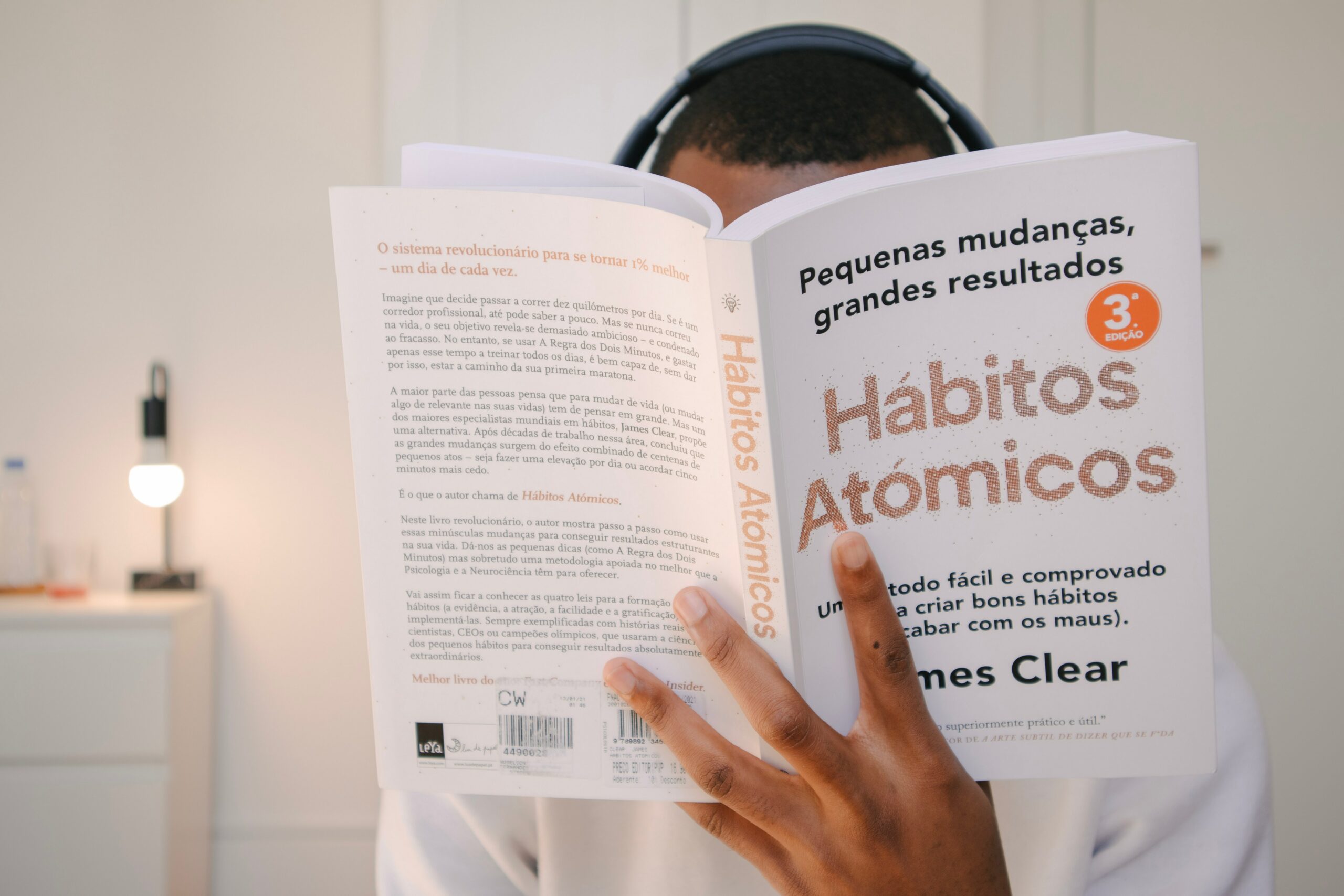Vídeo | What progress actually looks like in language learning
Este vídeo explora como o elemento surpresa desempenha um papel crucial no processo de aquisição linguística. Através de experiências pessoais e insights científicos, o texto revela como o cérebro humano utiliza a antecipação e a surpresa para ajustar e aprimorar nossa compreensão de novas línguas. Desde a luta com estruturas gramaticais até o momento em que tudo finalmente “clica”, a jornada de aprendizado é descrita como um processo contínuo de adaptação e descoberta. Este texto oferece uma perspectiva encorajadora sobre como lidar com os desafios e as recompensas de aprender um novo idioma, destacando a importância de paciência e persistência.
| Audio | |
|---|---|
Normal | Slow |
| English Transcript | Tradução |
| The element of surprise in language learning, when I have a session with my tutor now in Turkish, I never quite know how I'm going to do. | O elemento surpresa na aprendizagem de idiomas, quando tenho uma sessão com meu tutor de turco, nunca sei exatamente como vou me sair. |
| Sometimes I surprise myself, with how well I do and yet at other times I'm very disappointed and I'm surprised at how much I can't produce or I've forgotten or that I get the structures of the language wrong. | Às vezes, me surpreendo com o quão bem me saio e, em outras vezes, fico muito decepcionado e surpreso com o quanto não consigo produzir ou que esqueci, ou que erro as estruturas do idioma. |
| So there's always that element of anticipation, but surprise is a big part of language learning, we know that from the MRI imaging of the brain. | Portanto, há sempre esse elemento de antecipação, mas a surpresa é uma grande parte da aprendizagem de idiomas, sabemos disso a partir das imagens de ressonância magnética do cérebro. |
| Based on the accumulated experience of reading and listening to the language, the brain starts to predict both in terms of vocabulary and in terms of structure, what's coming. | Com base na experiência acumulada de leitura e audição do idioma, o cérebro começa a prever, tanto em termos de vocabulário quanto de estrutura, o que está por vir. |
| And it's an important part of our ability to understand the language, comprehend the language that we are able to predict. | E isso é uma parte importante de nossa capacidade de entender o idioma, compreender o idioma que somos capazes de prever. |
| Language learning has been called a probabilistic error driven process, so that either what happens as we predict what's going to happen, it confirms what we think of the language, which is good, strengthens our hold on the language, or it contradicts it. | A aprendizagem de idiomas tem sido chamada de um processo probabilístico orientado por erros, de modo que, ou o que acontece conforme prevemos o que vai acontecer confirma o que pensamos sobre o idioma, o que é bom, fortalece nosso domínio do idioma, ou contradiz isso. |
| And if we see that different response than we anticipated after a while, we adjust our sense of the language to match what actually is happening. | E se vemos essa resposta diferente do que antecipávamos, depois de um tempo, ajustamos nossa percepção do idioma para corresponder ao que realmente está acontecendo. |
| So surprise is a big part of it. | Portanto, a surpresa é uma grande parte disso. |
| Similarly, even when we go to speak, we have to reach into what we have accumulated, our sense of the language, and we have to grab some words and some phrases and try them out. | Da mesma forma, mesmo quando vamos falar, temos que recorrer ao que acumulamos, nossa percepção do idioma, e temos que pegar algumas palavras e algumas frases e experimentá-las. |
| And depending on the response we get, again, that's going to confirm or not confirm, encourage us to adjust our comprehension, our sense of the language. | E, dependendo da resposta que recebemos, novamente, isso vai confirmar ou não confirmar, nos encorajar a ajustar nossa compreensão, nossa percepção do idioma. |
| So surprise is always there. | Portanto, a surpresa está sempre presente. |
| So it's a bit like this joke, and I can't remember if it was a German officer or what nationality of officer. | É um pouco como essa piada, e não me lembro se era um oficial alemão ou de que nacionalidade era o oficial. |
| You can pick the nationality of your choice. | Você pode escolher a nacionalidade de sua escolha. |
| But the story went that this officer laughed three times every time he was told a joke. | Mas a história dizia que esse oficial ria três vezes toda vez que lhe contavam uma piada. |
| So he laughed when he was told the joke, he laughed later when the joke was explained to him and then three weeks later, when he finally understood the joke, he laughed again. | Então ele ria quando lhe contavam a piada, ria mais tarde, quando a piada era explicada a ele, e depois de três semanas, quando finalmente entendia a piada, ria novamente. |
| So it's a bit silly, but there's a lot to that because first of all, jokes are about surprise. | Então é um pouco bobo, mas há muito nisso porque, em primeiro lugar, piadas são sobre surpresa. |
| So we find something funny because something happens that is contrary to our expectation. | Achamos algo engraçado porque algo acontece que é contrário à nossa expectativa. |
| And this expectation or being contrary to the expectation is very much culture dependent, context dependent, so you have to have a familiarity with that culture or that context in order for whatever happens in the joke to appear funny to you. | E essa expectativa ou ser contrário à expectativa é muito dependente da cultura, dependente do contexto, então você precisa ter familiaridade com essa cultura ou esse contexto para que o que acontece na piada pareça engraçado para você. |
| And until that happens, you can have it explained. | E até que isso aconteça, você pode ter isso explicado. |
| And this is true, I find, in language learning. | E isso é verdade, eu acho, na aprendizagem de idiomas. |
| I notice, for example, with my Turkish tutor, I have read the explanation of the Turkish verbs. | Eu noto, por exemplo, com meu tutor de turco, que li a explicação dos verbos turcos. |
| I have looked at the tables, and when I go to use it, I get it wrong until it clicks, so we have to be patient. | Eu olhei as tabelas, e quando vou usá-las, erro até que tudo se encaixe, então temos que ser pacientes. |
| We won't notice it, we won't be able to produce it. | Não vamos perceber, não vamos conseguir produzir. |
| Even though we've read the tables and we had it explained, and yet, somehow, until that context is rich enough, that what we are predicting, in the way of a structure or vocabulary item, it's either confirmed or, adjusted. | Mesmo que tenhamos lido as tabelas e tenhamos tido a explicação, e ainda assim, de alguma forma, até que esse contexto seja rico o suficiente, o que estamos prevendo, na forma de uma estrutura ou item de vocabulário, seja confirmado ou ajustado. |
| Until we have that, we won't find the joke funny. | Até que tenhamos isso, não acharemos a piada engraçada. |
| We won't, be able to use the language correctly and so we need to be patient and we need to circle back. | Não conseguiremos usar o idioma corretamente, e então precisamos ser pacientes e precisamos voltar. |
| I've looked at the tables over and over again. | Eu olhei as tabelas repetidamente. |
| That didn't do it. | Isso não resolveu. |
| I've read, I've listened to texts and finally it starts to come into focus and we just have to wait for that. | Eu li, ouvi textos e, finalmente, começa a fazer sentido e só precisamos esperar por isso. |
| Now, some people say, Oh, Steve, like for example, in Turkish, now I'm at 20,000 known words. | Agora, algumas pessoas dizem: Oh, Steve, como por exemplo, em turco, agora estou com 20.000 palavras conhecidas. |
| I say what does that really mean? | Eu digo: o que isso realmente significa? |
| You don't really know those words. | Você realmente não conhece essas palavras. |
| You can't use those words. | Você não pode usar essas palavras. |
| However, those are words that in a given context, I understood and was confident enough that I understood them, that I threw them into my known words reserve in my brain. | No entanto, essas são palavras que, em um determinado contexto, eu entendi e estava confiante o suficiente de que as entendi, que as joguei na minha reserva de palavras conhecidas no meu cérebro. |
| And there's many many more that are not yet known that also sit in my reserve, but they're all part of my growing sense of the language. | E há muitas, muitas mais que ainda não são conhecidas que também estão na minha reserva, mas todas fazem parte do meu crescente senso do idioma. |
| So to me, in order to build up my ability to predict, I need to accumulate words. | Então, para mim, para desenvolver minha capacidade de prever, preciso acumular palavras. |
| The fact that I encourage myself by claiming some of these words as known in some sense that, okay, in a given context, I understood that sort of scope of meaning, maybe in another context, I won't understand it, it doesn't matter, it's an ongoing process of getting used to the language. | O fato de me encorajar alegando algumas dessas palavras como conhecidas, em certo sentido, que, ok, em um determinado contexto, entendi esse tipo de escopo de significado, talvez em outro contexto, eu não entenda, não importa, é um processo contínuo de se acostumar com o idioma. |
| So I don't worry about how well I know the word. | Portanto, não me preocupo com o quão bem conheço a palavra. |
| Some people say you have to be able to use it. | Algumas pessoas dizem que você tem que ser capaz de usá-la. |
| You have to invest time in studying the etymology and, or you should use a, monolingual dictionary and all of this sort of focusing in on that word, I think is the wrong approach. | Você tem que investir tempo em estudar a etimologia ou deve usar um dicionário monolíngue e todo esse tipo de foco naquela palavra, eu acho que é a abordagem errada. |
| You have to throw it in there, claim credit for some that you're, you think you know, and you may be surprised to find out you don't know it, but you just keep on filling your head with words and then seeing what you predict when you hear the language, when you read the language, when you speak the language, and you slowly adjust. | Você tem que jogá-la lá, reivindicar crédito por algumas que você acha que conhece, e pode se surpreender ao descobrir que não a conhece, mas você continua enchendo sua cabeça com palavras e depois vendo o que você prevê quando ouve o idioma, quando lê o idioma, quando fala o idioma, e você ajusta lentamente. |
| And eventually you get to the stage where you understand the joke, or you understand the movie. | E, eventualmente, você chega ao estágio em que entende a piada ou entende o filme. |
| Because even there, when you are watching a movie, say I'll be watching a movie in Turkish, it's not just the words, it's my sense of that cultural context, which gradually grows. | Porque mesmo lá, quando você está assistindo a um filme, digamos que estarei assistindo a um filme em turco, não são apenas as palavras, é minha percepção desse contexto cultural, que cresce gradualmente. |
| And in that sense, there are fewer and fewer surprises as we get better and better at the language. | E nesse sentido, há cada vez menos surpresas à medida que melhoramos no idioma. |
| And therefore we shouldn't be too hard on ourselves if we continue to disappoint ourselves in conversation or continue not to understand certain things, unpleasant surprises, that's normal. | Portanto, não devemos ser muito duros conosco se continuarmos a nos decepcionar na conversa ou continuarmos a não entender certas coisas, surpresas desagradáveis, isso é normal. |
| But there also are lots of pleasant surprises when we do better than we thought we were gonna do. | Mas também há muitas surpresas agradáveis quando nos saímos melhor do que pensávamos que íamos nos sair. |
| So just a little digression on this whole issue of, the importance of the known words total, that I consider an important part of my language learning strategy and my goal setting what that actually means. | Então, apenas uma pequena digressão sobre toda essa questão da importância do total de palavras conhecidas, que considero uma parte importante da minha estratégia de aprendizagem de idiomas e do meu estabelecimento de metas, o que isso realmente significa. |
| And this reference to what we know from how the brain learns languages, that the element of surprise is a big part of how the brain gradually gets used to a new language. | E essa referência ao que sabemos sobre como o cérebro aprende idiomas, que o elemento surpresa é uma grande parte de como o cérebro gradualmente se acostuma a um novo idioma. |
| Thank you for listening. | Obrigado por ouvir. |
| Bye. | Tchau. |
Contagem de palavras
A tabela abaixo exibe as palavras encontradas neste vídeo, bem como o número de vezes em que aparecem.
Veja também: Para que serve esta tabela?
| Freq. | Palavra | Freq. | Palavra | Freq. | Palavra |
|---|---|---|---|---|---|
| 50 | the | 43 | to | 37 | and |
| 35 | that | 34 | of | 34 | I |
| 32 | we | 26 | you | 26 | it |
| 25 | is | 22 | language | 22 | in |
| 20 | have | 20 | a | 15 | not |
| 14 | so | 12 | what | 12 | or |
| 11 | words | 11 | when | 10 | my |
| 10 | are | 8 | there | 8 | joke |
| 8 | do | 8 | be | 7 | this |
| 7 | surprise | 7 | some | 7 | sense |
| 7 | our | 7 | on | 7 | know |
| 7 | context | 6 | will | 6 | part |
| 6 | how | 6 | he | 6 | for |
| 6 | but | 6 | at | 5 | with |
| 5 | was | 5 | use | 5 | understand |
| 5 | turkish | 5 | predict | 5 | learning |
| 5 | known | 5 | get | 5 | brain |
| 4 | until | 4 | understood | 4 | say |
| 4 | read | 4 | laughed | 4 | just |
| 4 | happens | 4 | find | 4 | am |
| 4 | able | 3 | yet | 3 | wrong |
| 3 | those | 3 | think | 3 | them |
| 3 | tables | 3 | surprises | 3 | officer |
| 3 | now | 3 | need | 3 | movie |
| 3 | into | 3 | if | 3 | going |
| 3 | funny | 3 | explained | 3 | expectation |
| 3 | even | 3 | element | 3 | cannot |
| 3 | big | 3 | better | 3 | because |
| 3 | as | 3 | an | 3 | all |
| 3 | again | 3 | adjust | 2 | your |
| 2 | word | 2 | which | 2 | well |
| 2 | watching | 2 | vocabulary | 2 | very |
| 2 | used | 2 | tutor | 2 | told |
| 2 | times | 2 | time | 2 | three |
| 2 | then | 2 | than | 2 | terms |
| 2 | surprised | 2 | structure | 2 | starts |
| 2 | speak | 2 | sort | 2 | something |
| 2 | should | 2 | response | 2 | reserve |
| 2 | really | 2 | produce | 2 | process |
| 2 | people | 2 | patient | 2 | over |
| 2 | out | 2 | ourselves | 2 | order |
| 2 | notice | 2 | nationality | 2 | myself |
| 2 | much | 2 | many | 2 | looked |
| 2 | listening | 2 | like | 2 | later |
| 2 | important | 2 | gradually | 2 | go |
| 2 | given | 2 | from | 2 | finally |
| 2 | fewer | 2 | example | 2 | enough |
| 2 | encourage | 2 | either | 2 | does |
| 2 | dependent | 2 | culture | 2 | contrary |
| 2 | continue | 2 | confirm | 2 | can |
| 2 | bit | 2 | always | 2 | also |
| 2 | actually | 2 | accumulated | 2 | about |
| 2 | ability | 1 | worry | 1 | whole |
| 1 | while | 1 | where | 1 | whatever |
| 1 | were | 1 | went | 1 | weeks |
| 1 | way | 1 | wait | 1 | verbs |
| 1 | us | 1 | up | 1 | unpleasant |
| 1 | try | 1 | true | 1 | total |
| 1 | too | 1 | throw | 1 | threw |
| 1 | thought | 1 | though | 1 | things |
| 1 | they | 1 | these | 1 | therefore |
| 1 | thank | 1 | texts | 1 | studying |
| 1 | structures | 1 | strengthens | 1 | strategy |
| 1 | story | 1 | steve | 1 | stage |
| 1 | sometimes | 1 | somehow | 1 | slowly |
| 1 | sit | 1 | similarly | 1 | silly |
| 1 | setting | 1 | session | 1 | seeing |
| 1 | see | 1 | scope | 1 | rich |
| 1 | remember | 1 | reference | 1 | reading |
| 1 | reach | 1 | quite | 1 | probabilistic |
| 1 | predicting | 1 | pleasant | 1 | pick |
| 1 | phrases | 1 | other | 1 | ongoing |
| 1 | okay | 1 | oh | 1 | normal |
| 1 | new | 1 | never | 1 | mri |
| 1 | more | 1 | monolingual | 1 | means |
| 1 | meaning | 1 | mean | 1 | me |
| 1 | maybe | 1 | may | 1 | matter |
| 1 | match | 1 | lots | 1 | lot |
| 1 | little | 1 | listened | 1 | learns |
| 1 | languages | 1 | keep | 1 | jokes |
| 1 | item | 1 | issue | 1 | invest |
| 1 | importance | 1 | imaging | 1 | however |
| 1 | hold | 1 | him | 1 | hear |
| 1 | head | 1 | has | 1 | hard |
| 1 | happening | 1 | happen | 1 | had |
| 1 | grows | 1 | growing | 1 | grab |
| 1 | good | 1 | gonna | 1 | goal |
| 1 | getting | 1 | gets | 1 | german |
| 1 | forgotten | 1 | focusing | 1 | focus |
| 1 | first | 1 | filling | 1 | familiarity |
| 1 | fact | 1 | explanation | 1 | experience |
| 1 | every | 1 | eventually | 1 | etymology |
| 1 | error | 1 | driven | 1 | disappointed |
| 1 | disappoint | 1 | digression | 1 | different |
| 1 | did | 1 | dictionary | 1 | depending |
| 1 | cultural | 1 | credit | 1 | correctly |
| 1 | conversation | 1 | contradicts | 1 | consider |
| 1 | confirms | 1 | confirmed | 1 | confident |
| 1 | comprehension | 1 | comprehend | 1 | coming |
| 1 | come | 1 | clicks | 1 | claiming |
| 1 | claim | 1 | circle | 1 | choice |
| 1 | certain | 1 | called | 1 | bye |
| 1 | by | 1 | build | 1 | both |
| 1 | being | 1 | been | 1 | based |
| 1 | back | 1 | approach | 1 | appear |
| 1 | anticipation | 1 | anticipated | 1 | another |
| 1 | after | 1 | adjusted | 1 | accumulate |










Excelente